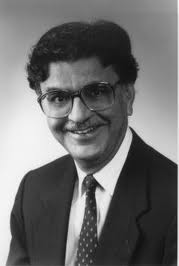About the International Association for World Englishes (IAWE)
Introduction
The International Association for World Englishes (IAWE) is a non-profit corporation that has brought together scholars working in the field of English language, linguistics, literature and cultural studies to conferences in the US and internationally since its foundation in 1992. Three distinguished scholars were responsible for its foundation and development, namely Braj B. Kachru (1932-2016), Yamuna Kachru (1933-2013) and Larry E. Smith (1941-2014). At the time of writing this entry, the Association has thus far held 24 conferences worldwide, of which nine have been held in the US and 15 internationally. Locations outside the US have included Australia, Canada, China, Germany, Hong Kong, India, Ireland, Japan, Philippines, Singapore, South Africa, and Turkey. In previous years, conferences were often held annually, although recently, it has been decided to hold the conferences biennially. The origins of the International Association for World Englishes The origins of the International Association for World Englishes (IAWE) can be traced back to two international academic conferences that took place in April 1978 at the East-West Center in Honolulu, and in June-July at the University of Illinois at Urbana-Champaign. One important result of these conferences was the formulation of a program for research publications and other activities related to world Englishes, as well as a number of early publications that established world Englishes (WE) as a distinct sub-branch of linguistics. One key distinction that emerged from the Honolulu conference was that between English for international (external) purposes and English for intranational (internal) purposes, an insight that would later lead to the threefold categories of Inner, Outer and Expanding Circles. The Honolulu conference also identified four key areas for academic development, namely basic research, applied research; documentation, dissemination and liaison; and professional support activities. Another milestone on the path to IAWE was a third conference that took place on language and power, again at the East-West Center, which set out to explore the concept of power from a cross-cultural perspective and to provide data for the data of this topic with reference to language, literature and media. Following this, at the 1988 TESOL conference in Chicago, Braj Kachru and Larry E. Smith formed the International Committee for the Study of World Englishes (ICWE), to bring together interested scholars working on various aspects of world Englishes. In 1992, the ICWE met at the University of Illinois at Urbana-Champaign on the occasion of a conference on “World Englishes today”, and at this conference, the International Association for World Englishes was formally launched. IAWE conferences, 1992-2019 In the 27 years from 1992 to 2019, the IAWE association has held 24 conferences in the US and overseas. Of these 24 conferences, nine have been held in the US, and 15 internationally. Locations outside the US have included Australia, Canada, China, Germany, Hong Kong, India, Ireland, Japan, Philippines, Singapore, South Africa, and Turkey. In previous years, conferences were often held annually, although recently, it has been decided to hold the conferences biennially. List of past IAWE conferences (No., Location, Host institution, Year)
The IAWE conferences have been extremely valuable in bringing together university teachers of English language and linguistics, as well as related disciplines, in so many different locations worldwide. These have included three conferences in Japan, two in Hong Kong, two in the Philippines, and one each in Australia, Canada, China, Germany, India, Ireland, Singapore, South Africa and Turkey. As in other areas of IAWE engagement, including the World Englishes journal, the conferences are remarkable in terms of their inclusivity and openness to academic, intellectual and geographical diversity. From 2012 onwards, IAWE has awarded the Braj B. Kachru Student Award for the best paper presented by a student at the association’s conference. The Board of the International Association for World Englishes The Board of the International Association for World Englishes includes the President, the Vice President/President Elect, the immediate Past President, two Members, the Secretary/Treasurer, and the Executive Director. In 2022, the President is S. N. Sridhar (Stony Brook University); the Vice President/President Elect is Isabel Pefianco Martin (Ateneo de Manila University); the immediate Past President is Tej K. Bhatia (Syracuse University); the two Members are Eyamba Bokamba (University of Illinois at Urbana-Champaign) and Kamal K. Sridhar (Stony Brook University); the Secretary/Treasurer is Daniel R. Davis (University of Michigan-Dearborn); and the Executive Director is Kingsley Bolton (Stockholm University). Over the past 30 years, the IAWE organization has sought to promote the study of world Englishes in the international academic community, with particular reference to scholars and teachers of English language studies in the US and overseas. The IAWE organization owed its origins to the enthusiasm and vision of its founders, Profs Braj and Yamuna Kachru and Larry E. Smith. Since their passing, the IAWE Board continues to do its best to honor their memories as well as their vision for the association, as an inclusive, pluralistic and intellectually innovative forum for teaching, research and publication on world Englishes. Adapted from Bolton, K., & Davis, D. R. (2023). The International Association for World Englishes (IAWE). In K. Bolton (Ed.), The Wiley Blackwell encyclopedia of world Englishes. Oxford: Wiley Blackwell. Past Presidents of IAWELarry E. Smith 1993-1996
Braj B. Kachru 1997-1998 Anne Pakir 1999-2000 Ayo Bamgbose 2001-2002 Kingsley Bolton 2003-2004 Margie Berns 2005-2006 Bertus Van Rooy 2007-2008 Daniel R. Davis 2009-2010 Zoya G. Proshina 2011-2012 Suzanne Hilgendorf 2013-2014 Cecil L. Nelson 2015-2017 Tej K. Bhatia 2018-2019 A Cultural Warrior Rests His Case
|
IAWE Officers
Kingsley Bolton
Stockholm University Stockholm, Sweden Executive Director kingsley.bolton@english.su.se S.N. Sridhar Stony Brook University President Stony Brook, NY USA s.sridhar@sunysb.edu Isabel Martin Ateneo de Manila University Vice President/President Elect Manila, Philippines mmartin@ateneo.edu Tej K. Bhatia Syracuse University Immediate Past President Syracuse, NY USA tkbhatia@syr.edu Daniel R. Davis University of Michigan-Dearborn Secretary/Treasurer (Any questions about membership should be addressed to him) Dearborn, MI USA davisdr@umich.edu Eyamba Bokamba Director Urbana, IL USA bokamba@illinois.edu Kamal (Meena) Sridhar Director Stony Brook, NY USA kamal.sridhar@stonybrook.edu |
